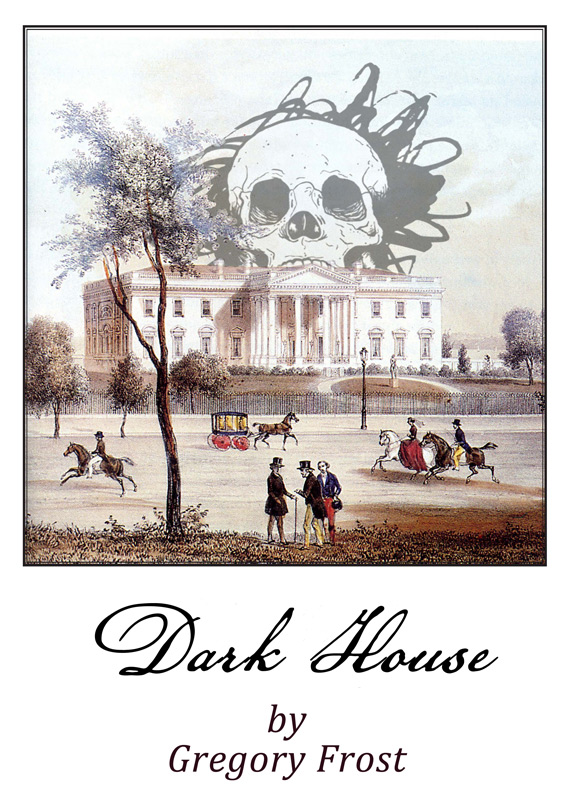I have been tagged by author/editor A.C. Wise to participate in The Next Big Thing, which is growing so exponentially that soon no one will remember where it began…which I already don’t. But on to the Q&A portion of the program.
Ten Interview Questions for The Next Big Thing
1. What is the title of your Work in Progress?
DARK HOUSE.
2. Where did the idea come from for the book?
A conversation with screenwriter Joe Gangemi, which in turn came from a conversation he had with two producers at Lionsgate. They were interested in doing a film about a haunted White House. He asked me if I would be interested in writing such a book–at that point no particular presidency had been selected. (Joe and I had both rejected Lincoln.) So I started researching, and found the perfect White House situation.
3. What genre does your book fall under?
Historical thriller.
4. Which actors would you choose to play your characters in a movie rendition?
This is always fun to think about. David Strathairn would be my choice for President John Tyler; there’s a physical resemblance there, and I had him in mind throughout. Omari Hardwick or Laz Alonzo perhaps for the main character, James Christian. His is going to be a tough slot to fill. Colin Farrell was who I thought of while writing Martin Renehan, a “Frogtown” fireman who becomes one of the president’s bodyguards. I’d love to get Idris Elba and Keith David in there somewhere, too. Keith David’s also my top choice for reader if there’s to be an audiobook.
5. What is a one-sentence synopsis of the book?
Historical thriller set in the White House of 1841, where one president dies in office, and the next moves into a house haunted by ghosts and by something far more sinister. (the image is of my notebook cover for the project–don’t go looking for this in the bookstores…)
6. Will your book be self-published or represented by an agency?
I’m not planning to self-publish anytime soon.
7. How long did it take you to write the first draft of the manuscript?
Quite awhile. Initially there was a lot of researching to be done. Then I started out attempting it in an omniscient POV in order to fold in the true historical events; but after about 100 pages, I found that these historical episodes spiked out of the narrative rather than incorporating as they should. They were stopping the story dead every time they turned up. So I came at it again as a first person narration. Overall, I guess the first draft probably took me a year.
8. What other books would you compare this story to in your genre?
One of my own, FITCHER’S BRIDES, which is set in 1848 in the Fingerlakes district of New York, and is a retelling of the Bluebeard fairy tale. And novels by Dan Simmons, Matthew Pearl, and maybe even a bit of Tim Powers, whom I greatly admire.
9. Who or what inspired you to write this book?
As I said, this gets laid on Joe Gangemi entirely. I was minding my own business, working on a contemporary supernatural mystery series, kind of “The Thin Man meets Topper,” when this came along, derailing that pretty effectively.
10. What else about your book might pique the reader’s interest?
A lot of what’s in the book is true: the president was horribly unpopular with the Congress, and mobs attacked the White House, which forced him to create a team of “doormen”–becoming the first iteration of the Secret Service. The house itself was in the state of a Halloween exhibit. Charles Dickens (who plays a small but critical part in the book) described it in fairly horrific detail when he arrived there in 1842.
Include the link of who tagged you and this explanation for the people you have tagged.
A.C. Wise is entirely responsible, although I gather the “game” of the Next Big Thing has come through some other luminaries–writers like: Donna Galanti and Lucas Mangum.



